Meet the team
Our multidisciplinary group of Nigeria experts and academics, orchestrated by UCL’s Institute for Global Health, is working in close collaboration with the heads of key Nigerian health agencies. This is supported by our Core Team based at the University College London and its partner institutions. Click here for our contact details or social media.
- Commissioners
- Core Team
- Collaborators
- The Lancet Editors
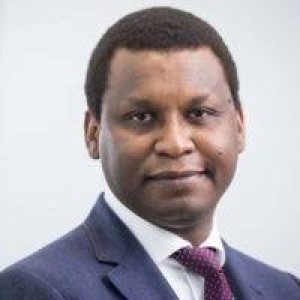
Ibrahim Abubakar
Dean, UCL Faculty of Population Health Sciences
Professor in Infectious Disease Epidemiology
Ibrahim Abubakar is Dean of University College London, Faculty of Population Health Sciences (FPHS). He is honorary Consultant at Public Health England and an NIHR Senior Investigator. His global health research interests combine health system and policy and a focus on the epidemiology and control of diseases affecting vulnerable populations including tuberculosis, HIV, hepatitis and emerging infections with studies in multiple countries.
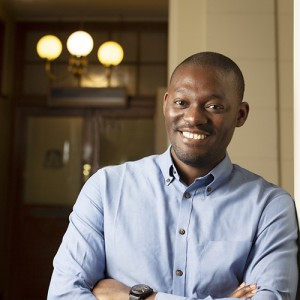
Seye Abimbola
Seye Abimbola is a health systems researcher. He has worked as a health care practitioner and/or researcher in Nigeria where he completed his medical training at Obafemi Awolowo University, Ile-Ife; in Australia where completed an MPhil in Public Health and PhD in health systems research at the University of Sydney, and in the United Kingdom where he was a Sidney Sax Overseas Early Career Fellow at the University of Oxford. He was a BMJ Clegg Scholar in 2007, a Rotary Scholar from 2009-10, and a researcher at the National Primary Health Care Development Agency in Nigeria from 2010-2013. He studies community engagement in governance, decentralised governance, and the role of governance in the adoption and scale up of health system innovations. He also works to promote equity and justice in global health research and practice. He is the Prince Claus Chair in Global Health and Development (2020-22) at Utrecht University in the Netherlands, a senior lecturer in global health at the University of Sydney in Australia, and the editor in chief of BMJ Global Health.
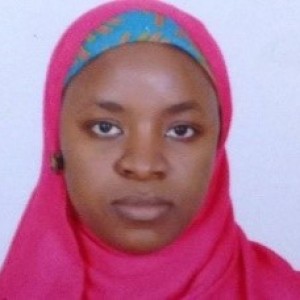
Aishatu Adamu
Dr. Aishatu Adamu is a Public Health Physician and Epidemiologist at Aminu Kano Teaching Hospital and Bayero University Kano. She trained as a medical doctor in University of Jos, Nigeria and completed her residency training in Community Medicine at Aminu Kano Teaching Hospital, Kano for which she obtained the Fellowship of the West African College of Physicians in community Medicine. She has also received an MSc Epidemiology from the London School of Hygiene and Tropical Medicine.
Her interests are vaccine and infectious diseases epidemiology. She is involved in training of undergraduate and postgraduate medical doctors and supports public health and epidemiological activities at the Ministry of Health. She is currently based at the KEMRI-Wellcome Trust Research Programme and working on assessing the impact of pneumococcal conjugate vaccine introduction in Nigeria.
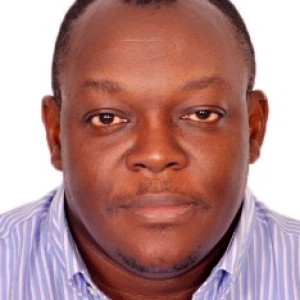
Ifedayo Adetifa
Associate Professor of Infectious Diseases Epidemiology
Ifedayo Adetifa is a Clinical Epidemiologist, Epidemiology and Demography Department, KEMRI-Wellcome Trust Research Programme (KWTRP), Kilifi, Kenya, Associate Professor of Vaccine Epidemiology, Department of Infectious Disease Epidemiology, London School of Hygiene & Tropical Medicine, United Kingdom and a Consultant Paediatrician. His research is focused on generating evidence for vaccine policy in the low- and middle-income countries through vaccine impact studies, vaccine seroepidemiology, and innovative approaches for monitoring vaccination. He is engaged in the vaccine policy arena through memberships of the Kenyan National Immunisation Coordinating Committee, and the World Health Organisation’s Africa Regional Immunisation Technical Advisory Group, Malaria Vaccine Implementation Programme’s Advisory Group, and Technical Advisory Group for RSV Vaccines.
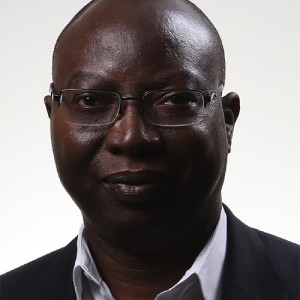
Adebowale Adeyemo
Deputy Director, Center for Research on Genomics and Global Health, Associate Investigator, National Human Genome Research Institute
Dr Adeyemo is the Deputy Director of the Center for Research on Genomics and Global Health (CRGGH) and Associate Investigator at the National Human Genome Research Institute (NHGRI), National Institutes of Health, Bethesda, MD, USA. His research focuses on the genetic epidemiology of complex diseases, epidemiology of cardiometabolic disease and genomics of populations of African ancestry. His work uses high-throughput genome technology and analysis methods to answer biological and clinically relevant questions in human disease. He has served on multiple national and international grant and/or program review panels. He was a member of the Non-Communicable Disease Working Group of the Human Heredity and Health in Africa (H3Africa) Consortium and served as co-chair of the H3Africa Genome Analysis Working Group.
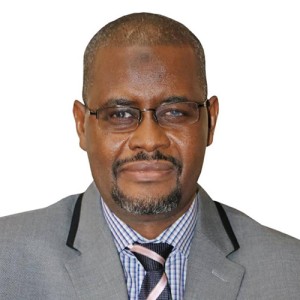
Gambo Aliyu
Gambo is public health expert with experience in innovative strategies for optimal HIV service delivery, behavior change and high-quality clinical outcomes to inform policies and programs for effective response. He directed the implementation of the world largest and highly innovative HIV population-based survey, led the national evaluation of Test and Treat and Community ART treatment strategies, and co-pioneered mobile HIV testing and service delivery to key affected populations in Nigeria while coordinating the development of sero-conversion panels to optimize assays for identification of recent HIV infections. Gambo supported the establishment and equipping of state-of-the-art HIV laboratories, International Research Center of Excellence in Abuja and University of Maryland’s Epi-Nigeria mentoring program. Prior to his appointment as DG, NACA, Gambo was Country Director, University of Maryland’s program in Nigeria and Assistant Professor at the University of Maryland School of Medicine.
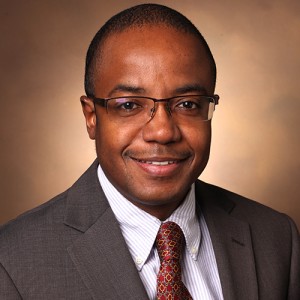
Muktar Aliyu
Muktar Aliyu is Professor of Health Policy and Medicine with Vanderbilt University Medical Center and Associate Director for Research with the Vanderbilt Institute for Global Health, USA. Dr. Aliyu attended medical school at the Ahmadu Bello University in Nigeria and completed graduate training in public health at the George Washington University and the University of Alabama at Birmingham (UAB), USA. He joined Vanderbilt University after completing residency and fellowship training at Meharry Medical College, Nashville, Tennessee and the Mayo Clinic in Rochester, Minnesota.
Dr. Aliyu’s research interests are in strengthening health systems by developing implementation science approaches to delivering high quality, sustainable and culturally appropriate care in resource-limited settings (200+ publications). For 6 years he directed Vanderbilt’s comprehensive HIV prevention and treatment program in Nigeria that was funded by the U.S. Centers for Disease Control and Prevention (CDC). He is currently a principal investigator on several research and training grants from the U.S. National Institutes of Health.
Dr. Aliyu is the recipient of several awards, including the UAB Alumni Award for Scientific Excellence, the Meharry Medical College Dean’s Award for Excellence in Teaching, the Mayo Foundation’s William H.J. Summerskill Award for Outstanding Research Achievement, and the American College of Preventive Medicine’s William Kane ‘Rising Star’ award, among others. He is board-certified by the American Board of Preventive Medicine in General Preventive Medicine and Public Health and in Occupational Medicine. Dr. Aliyu sits on the Board of Directors of the American College of Occupational and Environmental Medicine, Chicago, Illinois, USA and the African Health Innovation Center, Accra, Ghana.
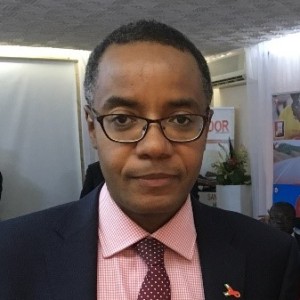
Sani Aliyu
Dr Sani Aliyu is currently the National Coordinator of the Nigeria Presidential Task Force on COVID-19.
Dr Aliyu obtained his medical degree from Ahmadu Bello University, Zaria in 1993 and an MSc (Medical Microbiology) from Queen Mary University of London in 2003. He worked as a consultant in Microbiology & Infectious diseases and Caldicott Guardian at Cambridge University Hospitals until 2016, when he was appointed Director-General of the Nigeria National Agency for the Control of AIDS (NACA). Dr Aliyu returned to his consultant post in Cambridge in June 2019 but was recalled back in March 2020 to lead Nigeria’s response to the COVID-19 epidemic.
Dr. Aliyu has served on various national and international bodies, including the UNAIDS Technical Committee on Standard Setting. At various times he was Chair of the Abidjan-Lagos Corridor Organisation (ALCO), the UK Infectious Diseases Specialist Certificate Examinations (SCE) and the Strengthening Integrated Delivery of HIV/AIDS Services (SIDHAS) Project. He is a Fellow of the Royal College of Physicians and the Royal College of Pathologists of the UK. His areas of interest include HIV and COVID-19 epidemiology, molecular diagnostics, and antimicrobial stewardship.
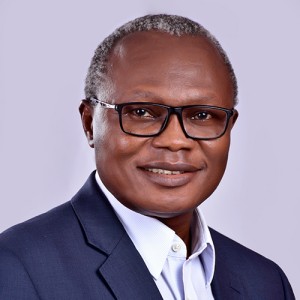
Emmanuel A. Ameh
Emmanuel A. Ameh, MBBS, FWACS, FACS is a Professor of Pediatric Surgery and Chief Consultant Pediatric Surgeon at the National Hospital, Abuja, Nigeria. His research focuses on global surgery, access to surgical care and children’s surgical care in low resource settings, as well as medical education and research. Professor Ameh has contributed significantly to building the health system to support safer surgery in Nigeria by leading the very first national surgical, obstetrics, anaesthesia and nursing plan for Nigeria, which is now at implementation phase.

Belinda Archibong
Belinda Archibong is an Assistant Professor of Economics at Barnard College, Columbia University. Her research areas include development economics, political economy, economic history and environmental economics with an African regional focus. Her research investigates the role of historical institutions and environment in inequality of access to public services and the development of human capital. Some current research studies the effects of epidemics on gender gaps in human capital investment, the economics of epidemics and vaccination, and the impacts of air pollution from gas flaring on human capital outcomes; with a focus on the ways in which institutions mitigate or exacerbate the impacts of climate change and environment on inequalities around gender and marginalized groups. Other works study the economics of prisons, the effects of protests on taxation and gender gaps in political participation, and the drivers of gender gaps in labor markets in African countries. She is a faculty affiliate at Columbia University’s Center for Development Economics and Policy (CDEP), The Earth Institute at Columbia University, the Institute of African Studies, the Institute for Research in African-American Studies, the Columbia Population Research Center (CPRC), and the Center for Environmental Economics and Policy (CEEP).
She joined the Barnard Economics faculty in 2015 and received a B.A. in Economics/Philosophy and a Ph.D. in Sustainable Development from Columbia University. Her CV and further information can also be found on her personal website.
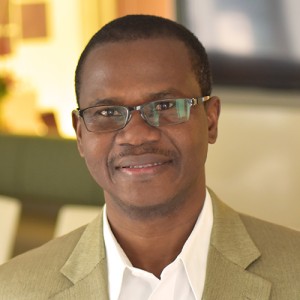
Alex Ezeh
Alex Ezeh is a Dornsife Professor of Global Health at the Dornsife School of Public Health, Drexel University, and he was a Distinguished Visiting Fellow at the Center for Global Development. Previously, he served as the founding Executive Director of the African Population and Health Research Center (APHRC) and, over a period of 17 years, guided APHRC to become one of Africa’s foremost regional research center addressing population, health, education and development issues. Dr. Ezeh initiated and directed the Consortium for Advanced Research Training in Africa (CARTA) and the African Doctoral Dissertation Research Fellowship programs to strengthen doctoral training and the retention of academics at African universities across sub-Saharan Africa.
Dr. Ezeh’s work focuses on urban/slum health, population dynamics in sub-Saharan Africa, and models to strengthen knowledge-based institutions in Africa. He serves on numerous international and non-profit boards, including the High-Level Advisory Board for Economic and Social Affairs of UNDESA. He has contributed to several Lancet Commissions including the Rockefeller Foundation-Lancet Commission on Planetary Health, and the Lancet Commission on the Future of Health in Africa. He also Co-Chaired the Guttmacher Lancet Commission on Sexual and Reproductive Health and Rights.
Dr. Ezeh is the recipient of The World Academy of Sciences’ 2018 Prize for the Social Sciences, and the London School of Hygiene and Tropical Medicine and Royal Society for Tropical Medicine and Hygiene’s 2020 George Macdonald Medal. He is Honorary Professor of Public Health at the University of Witwatersrand and holds two Honorary Doctor of Science degrees from KCA University (Kenya) and University of Ibadan (Nigeria).
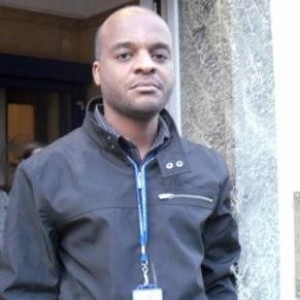
Muktar A. Gadanya, MFR
Head, Department of Community Medicine, Bayero University/Aminu Kano Teaching Hospital, Kano, Nigeria
Associate Professor/Honourary Consultant Public Health Physician
Dr. Muktar Gadanya, MFR was awarded the Presidential National Honour of Member of the Order of Federal Republic (MFR) for service to Public Health at the age of 29 years. He currently serves as a Core Group member of the Nigeria National Immunization Technical Advisory Group (NITAG) (including its sub-committee on emerging diseases/COVID-19) convened by the Honourable Minister of Health. He was Principal Investigator for three National Research. He was the lead consultant for the development of Nigeria’s National Family Planning Blueprint and for Nigeria’s National Immunization Coverage and Equity Assessment.
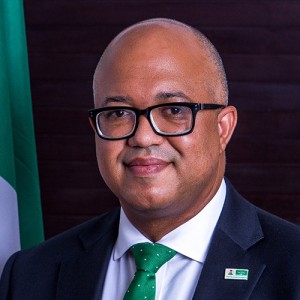
Chikwe Ihekweazu
Dr. Chikwe Ihekweazu is the Director General of the Nigeria Centre for Disease Control (NCDC) and was until January 2018, the Acting Director of the Regional Centre for Disease Control for West Africa. Dr Ihekweazu trained as an infectious disease epidemiologist and has over 20 years’ experience working in senior public health and leadership positions in several National Public Health Institutes, including the South African National Institute for Communicable Diseases (NICD), the UK’s Health Protection Agency, and Germany’s Robert Koch Institute (RKI). Dr Ihekweazu has led several short- term engagements for WHO, mainly in response to major infectious disease outbreaks around the world including the WHO-China Joint Mission on Coronavirus Disease 2019 (COVID-19).
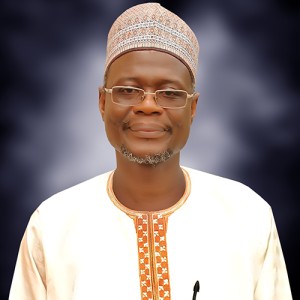
Zubairu Iliyasu
Professor Zubairu Iliyasu is a Professor of Public Health at Bayero University Kano and a Consultant Public Health Physician at Aminu Kano Teaching Hospital, Kano, Nigeria. He graduated from University of Maiduguri with an MBBS degree with Distinction in Biochemistry. A distinguished British Chevenning Scholar and Alumnus of Universities of Glasgow (MPH) and Sheffield (PhD). He is a Fellow of the National Postgraduate Medical College and the West African College of Physicians. He was the Founding Director, Centre for Infectious Diseases Research at Bayero University Kano, Nigeria (2016- 2019). He Chairs both the National Health Research Ethics Committee of Nigeria and the National Certification Committee for Polio Eradication in Nigeria.
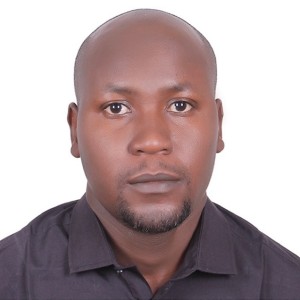
Rabiu Ibrahim Jalo
Dr. Ibrahim R. Jalo, MBBS, MSc, FWACP is a Lecturer and Public Health Physician working with Department of Community Medicine of Bayero University and Aminu Kano Teaching Hospital, Kano – Nigeria. Dr. Jalo trained as a medical doctor at Bayero University Kano and obtained MSc Public health from same institution. He also completed his residency training in community medicine at Aminu Kano Teaching Hospital, Kano.
Public health is a diverse and dynamic field that offers Dr. Jalo great personal and professional fulfillment by working towards improving people’s health and wellbeing through many community-oriented interventions that are not only fascinating but also endless. His research interest focus on HIV/AIDS, tuberculosis, immunisation services as well as other infectious and non-communicable diseases in sub-Saharan Africa.
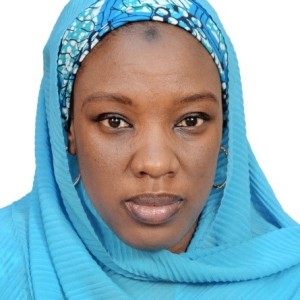
Aminatu Kwaku-Chiroma
Consultant Public health Physician
Aminatu Kwaku is a consultant Public Health Physician, with the Aminu Kano Teaching Hospital Kano. She obtained her medical degree from the University of Maiduguri and received the Fellowship of the West Africa College of Physicians on completion of residency at the Aminu Kano Teaching Hospital Kano. She is involved in general teaching, research, provision of clinical and community services .Her global health research interests are in Health services management and occupational health.

Diana Ayoola Mabayoje
BSc, MBBS, DTM&H, MSc, MRCP, FRCPath
Dr Diana Ayoola Mabayoje is a Specialist Registrar in Infectious Diseases and Microbiology in University College London Hospital. She studied medicine at UCL and has an MSc in Tropical Medicine and International Health from the London School of Hygiene and Tropical Medicine. She is currently a member of the advisory group for the National Institute for Health Research Centre for Engagement and Dissemination. She has also recently joined the advisory board for the Kings College London Fight the Fakes campaign combating falsified antimalarials and antibiotics. Her career interests include the epidemiology of infectious diseases, antimicrobial resistance and improving diagnostics and access to healthcare for underserved populations.
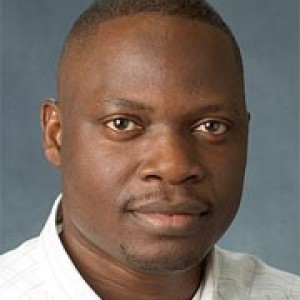
Ebenezer Obadare
Professor
Ebenezer Obadare is professor of sociology at the University of Kansas, and research fellow at the Research Institute for Theology and Religion, University of South Africa. He has written extensively civil society and the state, religion and politics, and health and politics in Africa. He is coeditor of The Journal of Modern African Studies. He is the author/editor of many books, including Pentecostal Republic: Religion and the Struggle for State Power in Nigeria (2018), Humor, Silence, and Civil Society in Nigeria (2016), The Handbook of Civil Society in Africa (2014), Governance and the Crisis of Rule in Contemporary Africa: Leadership in Transformation (2015), and Civic Agency in Africa: Arts of Resistance in the 21st Century (2014). He received his PhD in social policy from the London School of Economics and Political Science, and his MS in international relations and a BA in history from Obafemi Awolowo University in Nigeria.
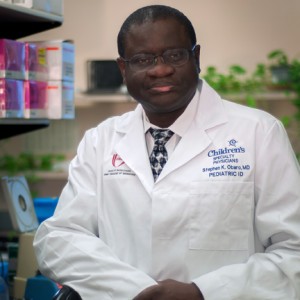
Stephen Obaro
Stephen Obaro MBBS, FWACP, MRCP(UK), FRCPCH, FAAP, PhD, FIDSA, FPIDSA is Professor of Pediatrics, Director of International Pediatric Research Program and Adjunct Professor with the Department of Microbiology and Pathology at the University of Nebraska Medical Center. He obtained his basic medical training at Ahmadu Bello University, Zaria, where he commenced his postgraduate training in Pediatrics before relocating to the United Kingdom. In addition to further training in clinical pediatrics, he obtained a PhD in Immunology at Imperial College, University of London.
Upon completion of his clinical and graduate training immunology, he worked with the UK Medical Research Council Research Laboratories in The Gambia, as Head of Field Station where his team established surveillance program for pneumococcal disease in children that contributed substantive data to the formulation of the pneumococcal conjugate vaccine for developing countries and the understanding of the epidemiology of invasive pneumococcal disease in children. He obtained additional graduate training in the US in general pediatrics at Pittsburgh Children Hospital and pediatric infectious disease fellowship at Brown University, Providence, Rhode Island.
He has established field studies in Nigeria to understand the epidemiology of bacteraemic syndromes in children and the risk factors associated with these infections, through funding support from the National Institutes for Health and the Bill and Melinda Gates Foundation. He is a trustee and co-founder of International Foundation Against Infectious Diseases in Nigeria (IFAIN), a non-governmental, not-for-profit organization that has established a platform for multidisciplinary projects in infectious disease and training for graduate students. The IFAIN laboratory network is also supporting research projects in Liberia, Ghana through the Joint West Africa Research Group (JWARG) and Rwanda.

Folabi Ogunlesi
Managing Partner, Vesta Healthcare Partners
Consultant Respiratory Physician
Folabi Ogunlesi is Managing Partner of Vesta Healthcare Partners and an Honorary Consultant Respiratory Physician at North West London Hospitals NHS Trust. He heads the clinician-led, premier Healthcare Management Consultancy Firm, Vesta Healthcare Partners. His particular expertise is the interface between business and healthcare; providing first-class consultancy services on Healthcare Business Strategy/Planning, Health Systems, Healthcare Financial/Transaction Advisory, Clinical Operational Processes and Clinical Governance/Risk Management, to private sector organisations, the Government of Nigeria, sub-nationals and the World Bank/International Finance Corporation.
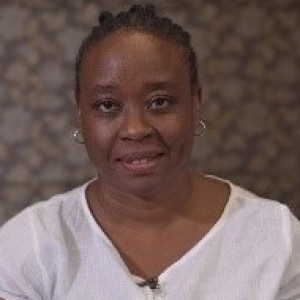
Iruka N Okeke
Professor, University of Ibadan
Iruka N Okeke is a Professor of Pharmaceutical Microbiology at the University of Ibadan, Nigeria. Her bacterial genetics research investigates the mechanisms bacteria use to colonize humans, cause disease and gain drug resistance. Her group also studies the molecular epidemiology of Gram negative pathogens that cause childhood diarrhoea, enteric fever and other bloodstream infections. Iruka is also a Science and Technology Studies scholar focused on biomedical laboratory practice in Africa.
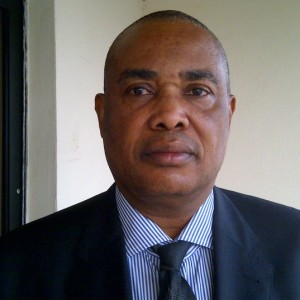
Friday Okonofua
Centre Leader, Centre of Excellence in Reproductive Health Innovation
Professor of Obstetrics and Gynaecology, and Reproductive Health
Friday Okonofua is the Centre Leader at the Centre of Excellence in Reproductive Health Innovation and Director of Grants and Research Administration at the University of Benin, Benin City, Nigeria. He is co-chair of the West African Maternal Health Research Network, and he is editor in chief of the African Journal of Reproductive Health. His global health research interests include maternal and child health, prevention of maternal mortality, public health research on malaria and other infectious diseases, interventional and translational research in the field of maternal health, and health systems strengthening.
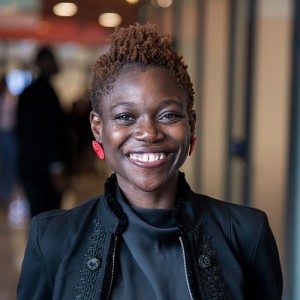
Tolullah Oni
Tolullah Oni is joint lead of the Global Diet and Activity Research Group, University of Cambridge; Honorary Associate Professor, University of Cape Town (UCT), and Founder & Principal of UrbanBetter | Oni et al.
A Public Health Physician and urban epidemiologist, her work supports a coordinated approach between science, policy and societal role players, identifying creative and long-term strategies to address complex urban health challenges in rapidly growing cities.
She has served as scientific adviser for several organisations including Future Earth and the International Science Council and is an editorial board member of Lancet Planetary Health, Cities and Health, and the Journal of Urban Health.
In recognition of her work, she has been profiled in the Lancet journal, Science magazine, and the British Medical Journal, and is a Fellow of the African Academy of Sciences, Next Einstein Forum Fellow and a World Economic Forum Young Global Leader.
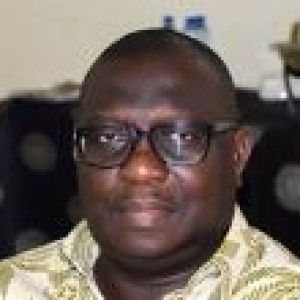
Obinna Onwujekwe
Professor
Professor Obinna Onwujekwe is medically qualified but also has MSc and PhD in Health Economics. He is a Professor of Pharmacoeconomics/ Pharmacoepidemiology in Department of Pharmacology and Therapeutics, and Professor of Health Economics, Systems & Policy in the Department of Health Administration and Management, both at the University of Nigeria Enugu Campus. He is an adjunct Professor of Health Policy and Systems with the Nigerian Institute of Medical Research (NIMR), Yaba, Lagos. He is the Director of Research in the University of Nigeria, the Coordinator of the Health Policy Research Group and the President of the Nigerian Health Economics Association. He was the technical facilitator of the 2014 Presidential Summit on Universal Health Coverage in Nigeria. He is a member of board of the African Health Economics and Policy Association (AfHEA) and the Health Reform Foundation of Nigeria (HERFON). He is also the Director of the Nigerian National Centre on Health Policy and Systems, University of Nigeria, which is part of the African Health Observatory Platform (AHOP) on Health Systems. He is a member of The African Advisory Committee on Health Research and Development (AACHRD) of the WHO African Regional Office (WHO AFRO), the Nigerian National Health Research Committee, the Ministerial Expert Advisory Committee on COVID-19 (MEACOC) and the COVID-19 Socio-economy working group of African Scientific Research and Innovation Council of the African Union. He is the editor of the African Journal of Health Economics. He has published more than 290 journal articles. He is a Fellow of the Nigerian Academy of Science. He is also a Fellow of the Academy of Medicine Specialties of Nigeria. His detailed profile is at : https://www.researchgate.net/profile/Obinna_Onwujekwe.
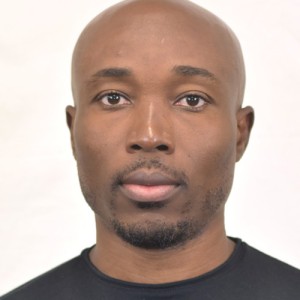
Olu Onyimadu
Olu’s DPhil research at the Nuffield Department of Primary Care Health Sciences, University of Oxford, focuses on the health economic aspects of childhood excess weight. His previous research roles at the University of Southampton and Brunel University London involved assessing the cost-effectiveness of health technologies for the National Institute for Health and Care Excellence and other policy makers. His research interests span economic modelling in public health and a broad range of non-communicable diseases, including cancers and obesity.
Olu obtained a master’s degree in Health Economics and Decision Modelling from the University of Sheffield and a master’s degree in Public Health from the University of Ilorin. Prior to undertaking a career in academic research, he served in various roles as a pharmacist in clinical and industry settings.
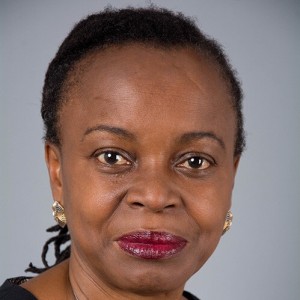
Eme T. Owoaje
Eme Owoaje is a public health physician and a professor of public health in the Department of Community Medicine, University of Ibadan as well as an honorary consultant physician to University College Hospital, Ibadan, Nigeria She is a fellow of the Faculty of Community Health of the West African College of Physicians.
Her area of specialization is Rehabilitative and Social Medicine, and she has conducted several research projects on the epidemiology of non-communicable diseases, health problems of vulnerable populations including the internally displaced persons, urban slum residents, older persons and people living HIV and AIDS in Nigeria. She is currently involved in multi-country research projects on implementation science and remote consulting using mobile health technology.
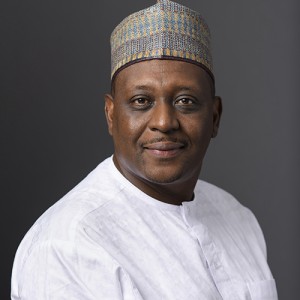
Muhammad Pate
Muhammad Ali Pate is the Global Director, Health, Nutrition and Population (HNP) Global Practice of the World Bank and the Director of Global Financing Facility for Women, Children and Adolescents (GFF), based in Washington DC. Dr. Pate was until recently the Chief Executive Officer of Big Win Philanthropy, based in the UK, and prior to that held several senior positions, including that of Minister of State for Health in the Federal Republic of Nigeria. He was previously in the World Bank Group where he joined as a Young Professional in 2000 and worked on health issues in several regions including Africa and the East Asia and Pacific.
Dr. Pate is an MD trained in both Internal Medicine and Infectious Diseases, with an MBA from Duke University. Prior to this he studied at the University College London. He also has a Masters in Health System Management from the London School of Hygiene & Tropical Medicine, UK.
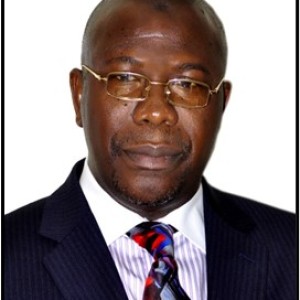
Babatunde L. Salako
Director-General/CEO, NIMR
MBBS(Ib), FWACP, FRCP (Edin), FRCP (Lond), MNIM, FNAMed, FAS.
Professor Babatunde Lawal Salako is a seasoned physician, teacher, researcher and administrator. He is currently the Director-General of the Nigerian Institute of Medical Research, Yaba Lagos. His research interest is hypertension and chronic kidney disease. He currently works in a consortium of the Kidney Disease Research Network with three NIH grants in collaboration with the Department of Public Health Sciences of the Loyola University, Chicago, University of Michigan, University of Arizona and the University of Ghana. He is a member of the General Assembly of the EDCTP, WHO/TDR Joint Coordinating Board and represent the Disease Endemic Committee on the TDR Standing Committee.
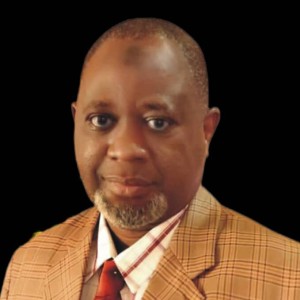
M.N. Sambo
Mohammed Nasir Sambo is a professor of Health Policy and Management with a strong bias in Healthcare Financing. He is the Executive Secretary of the National Health Insurance Scheme (NHIS) in Nigeria. An alumnus of the World Bank Institute For Healthcare Financing, he was a member of various Ministerial Technical Working Group (TWG) that shaped key health policies in Nigeria. Prof Sambo trained as a public health physician and was a visiting scholar to the University of Aberdeen, Scotland. He has been a consultant to UNDP, UNICEF DFID, the British council, GTZ amongst others.
Before his present appointment, he was Deputy Dean, Faculty of Medicine, Ahmadu Bello University, Nigeria and provost of the Faculty of Medicine, Kaduna State University. Sambo has supervised several fellowship programmes, Master’s degrees in Public Health. He has over 70 published articles in national and international journals.
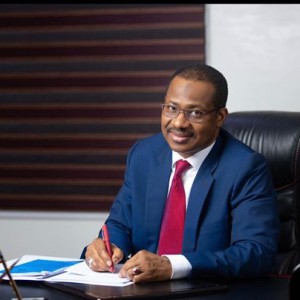
Faisal Shuaib
MBBS, MPH, DrPH
Dr. Faisal Shuaib is a public health specialist and medical doctor who led Nigeria’s campaign against Ebola and worked for nearly a decade on the fight against polio, including heading Nigeria’s efforts in the final years leading up to its successful eradication in August 2020.
Dr. Shuaib oversees primary healthcare provision to Nigeria’s more than 200 million people in his capacity as Executive Director and Chief Executive Officer of Nigeria’s National Primary Health Care Development Agency (NPHCDA). He was appointed in 2017 and led the final years of the polio eradication programme.
In 2014, Dr. Shuaib led Nigeria’s response to the Ebola crisis as Head of the Nigeria Ebola Emergency Operation Center. The Ebola crisis infected 28,600 people, primarily in West Africa, causing 11,325 deaths. Dr. Shuaib coordinated a team of over 1,000 health workers and volunteers, establishing a comprehensive system that provided quality diagnostic, treatment, care and follow up of Ebola patients, their contacts, and their families. Nigeria suffered just 8 deaths from the virus, and on October 20, 2014, the World Health Organisation (WHO) declared Nigeria free of Ebola, thanks to what the New York Times called an ‘’extraordinarily vigorous effort’’.
Much of Dr. Shuaib’s career has been devoted to the eradication of polio, a disease which plagued Nigeria for decades and paralyzed thousands of children. He served as Senior Technical Advisor to the Minister of State for Health on Immunization and Polio Eradication and was the Chief Operations Officer and Deputy Incident Manager of the National Polio Emergency Operation Center.
Dr. Shuaib designed the Bill and Melinda Gates Foundation’s polio outbreak response strategy and developed an innovative smartphone application to improve acute flaccid paralysis (AFP) surveillance across the region. Having accounted for more than half of all global cases in 2012, in August 2020 Nigeria was declared to be wild polio-free by the WHO, an historic global public health achievement.
Dr. Shuaib is a respected expert on managing epidemics and has authored and co-authored over 60 peer-reviewed scientific publications. He serves as a valuable resource for public health officials and has advised the WHO and the Nigeria’s Ministry of Health on a range of subjects.
He holds a medical degree from Ahmadu Bello University Zaria in Nigeria and a Doctor of Public Health from the University of Alabama, Birmingham, where he graduated with distinction.
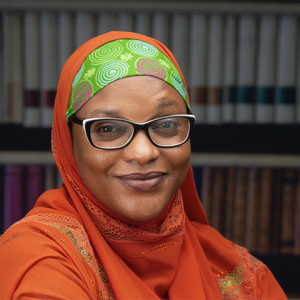
Fatimah Tsiga-Ahmed
Dr Fatimah Tsiga-Ahmed is a Public Health Physician and Epidemiologist with the Department of Community Medicine, Bayero University/Aminu Kano Teaching Hospital Kano. She holds an MBBS degree from Bayero University Kano and an MSc in Epidemiology from the London School of Hygiene and Tropical Medicine. She is a fellow of the West African College of Physicians having completed residency training at Aminu Kano Teaching Hospital.
Dr. Tsiga-Ahmed serves as an instructor in the public health residency training program and the BUK medical school. Her research interests include noncommunicable diseases (NCDs), disability prevention and HIV in vulnerable populations.
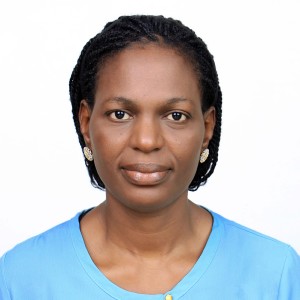
Adesola Yinka-Ogunleye
Epidemiologist
Nigeria Centre for Disease Control
Dr Adesola Yinka-Ogunleye is a Senior Epidemiologist at the Nigeria Centre for Disease Control (NCDC), Abuja, Nigeria and a Doctoral candidate at the Institute of Global Health, University College London, United Kingdom. She is a 2018/2019 Chatham House African Public Health Leaders Fellow, Institute of Global Health, Chatham House, United Kingdom.
Adesola has extensive experience in disease surveillance and public health response to infectious diseases at local, national and international levels. Her works and research interests include Infectious Diseases Epidemiology and One Health Approach in Disease Control.
She obtained her BDS and MPH (Field Epidemiology) degrees from The University of Ibadan, Nigeria and she’s well-published in peer-review journals.
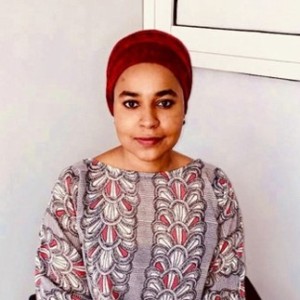
Fatima H. Zanna
Fatima Zanna is a public health specialist with experience in health systems strengthening and in the coordination of the public health response to HIV/AIDS in Nigeria. Her experience spans multi-sectoral partner coordination, grant management, performance management (including results-based financing) as well as policy, planning and strategy development. She currently works as a Technical Advisor on a Health Systems Strengthening (HSS) and Health Financing project with the aim of providing technical assistance to government and civil society entities towards promoting access and enhancing the impact of global health financing mechanisms. She is interested in health policy, planning and financing research, especially in relation to health sector reforms in low- and middle-income countries. Her current research endeavours focus on exploring the benefits of co-financing and multi-sectoral collaboration in delivering social protection (structural) interventions towards addressing risk factors amongst adolescents in Sub-Saharan Africa.
Fatima holds a Masters degree in Public Health with a focus on Health Economics from the London School of Hygiene and Tropical Medicine. She obtained an Honours BSc in Biology (Physiology) with a minor in Biochemistry from McMaster University in Canada.

Ibrahim Abubakar
Dean, UCL Faculty of Population Health Sciences
Professor in Infectious Disease Epidemiology
Ibrahim Abubakar is Dean of University College London, Faculty of Population Health Sciences (FPHS). He is honorary Consultant at Public Health England and an NIHR Senior Investigator. His global health research interests combine health system and policy and a focus on the epidemiology and control of diseases affecting vulnerable populations including tuberculosis, HIV, hepatitis and emerging infections with studies in multiple countries.
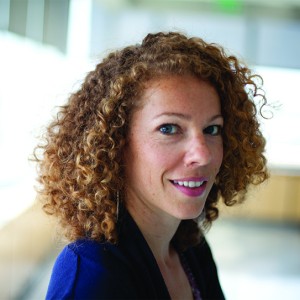
Sarah Dalglish
Honorary Associate
Sarah Dalglish is an Honorary Associate at University College London, Institute for Global Health (IGH) and Associate at the Johns Hopkins School of Public Health. She is a researcher and a policy expert on child health, most recently as coordinator and co-author of the WHO-UNICEF-Lancet Commission report. Her work focuses on the intersection of power, politics and health, and how this translates into (in)equitable policies at global and national levels, with a focus on West Africa. She is based in Paris and speaks fluent French and Hausa.

Sarah Sterlini
Programme Manager
Sarah Sterlini provides operations and governance support for the Lancet Nigeria Commission, whilst also leading on the logistical and communication aspects of the Commission’s activities. She has a BA in Geography and Development from the University of Sussex, a Post Graduate Certificate in Education and extensive administrative experience working in Higher Education settings.
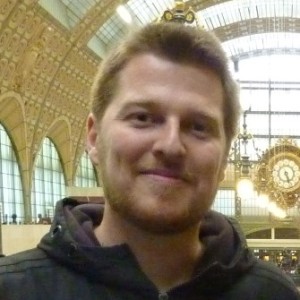
Tim Colbourn
Professor of Global Health Epidemiology and Evaluation
Tim Colbourn is an epidemiologist with expertise in economic evaluation. Tim’s research focuses on maternal, newborn and child health, and health systems interventions in communities and health facilities in Africa. He has expertise in impact, process and economic evaluation methods, and health systems. Tim’s current research includes work evaluating interventions for childhood pneumonia in Nigeria (The Save the Children-GSK INSPIRING programme in Jigawa and Lagos), and Malawi, evaluation of a multi-country quality improvement network with a focus on Bangladesh, Malawi, Uganda and Ethiopia (MRC Health Systems Research Initiative grant), and a GRCF-funded health systems modelling project Thanzi La Onse, which aims to inform priorities for the Malawian government’s 2022-2027 Health Sector Strategic Plan III.
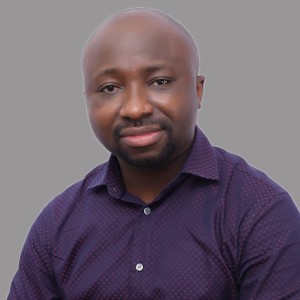
Olutobi Sanuade
Research Fellow, Infection and Population Health
Olutobi Sanuade is a Postdoctoral Research Fellow at the Havey Institute for Global Health, Northwestern University Feinberg School of Medicine, Chicago. He is currently working on implementation research projects on hypertension treatment and control in Nigeria as well as the Nigeria national sodium reduction program. Prior to this, he was a Research Fellow at the University College London Institute for Global Health. He completed his Postdoctoral training at the UCL Institute of Advanced Studies where he worked on a Wellcome Trust funded project on critical histories of chronic diseases in Africa. He has a background in Sociology (BSc, University of Ibadan, Nigeria), pre-doctoral training at the Population Research Institute, Pennsylvania State University (USA), and postgraduate qualifications (MPhil and PhD) in Population Studies from the University of Ghana (Ghana). His research interests focus on chronic and non-communicable disease prevention, experience, care, implementation research, and health systems response in low-and middle-income countries. He is passionate about training the next generation of population and public health researchers.
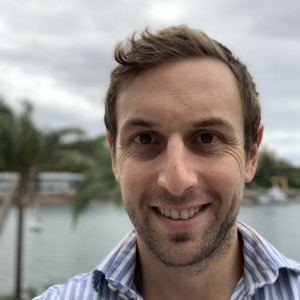
Blake Angell
Senior Research Fellow (Health Systems)
Blake Angell is a health economist and Senior Research Fellow in Health Systems Research at the George Institute for Global Health, UNSW Sydney. He is a National Health and Medical Research Council Emerging Leadership Fellow conducting research on the equity, efficiency and incentive impacts of health policy in health systems around the world. Blake holds a PhD from the Sydney School of Public Health at the University of Sydney and an MPH from the same school.
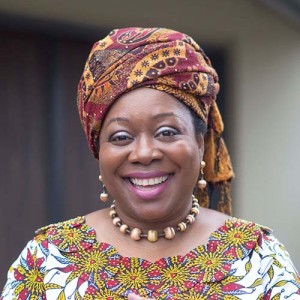
Oluwafunmilola (Lola) Dare
Dr. Lola Dare is President of CHESTRAD Global, a social enterprise with presence in Africa, Europe and North America. She leads strategy, programmes and partnership coordination across network members and country partners. A community physician, epidemiologist, public health practitioner, development consultant and sociopreneur, she is an irrepressible advocate for equity in global health and development.
She is a graduate of the College of Medicine University of Ibadan, Nigeria, holds a Master’s of Science degree in Epidemiology (London School of Hygiene and Tropical Medicine); fellowships in Population and Development and International Health from the Harvard School of Public Health, United States of America. Lola is a member of the West African Postgraduate Medical College, Faculty of Public Health; fellow, Nigerian National Postgraduate Medical College, Faculty of Community Medicine; and fellow by distinction of the UK Faculty of Public Health. She holds a certificate in Advance Management from INSEAD.
Dr. Dare has served on governance of international agencies including the US National Academies for Sciences and Medicine, Global Fund for Malaria, Tuberculosis and HIV/AIDS, Gavi , Partnership for Maternal and Child Health (PMNCH), International Health Partnership Plus (IHP+) WHO technical teams and agencies of the United Nations, African Union and African continental organizations. She is currently a member of the Transition Independent Monitoring Board (TIMB), Global Polio Eradication Initiative (GPEI) and Board member of the RBM Partnership to End Malaria
Dr. Dare is an innovative thought leader whose voice is well respected, informed and authentically southern in global health development.
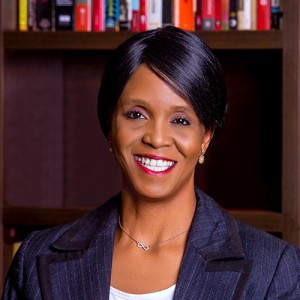
Vivianne Ihekweazu
Managing Director
Nigeria Health Watch
Vivianne Ihekweazu is the Managing Director of Nigeria Health Watch, a health communication and advocacy organisation based in Nigeria, advocating for improved access to health services. She is responsible for designing and implementing health advocacy strategies and campaigns for government, not-for-profits, and development partners in Nigeria to raise the profile of key health issues. She has an extensive international portfolio in strategic communications with 20 years’ experience working at global media communication and research agencies in the UK, South Africa, and Nigeria.
Vivianne is also passionate about enterprise and management development. She was a mentor on the Goldman Sachs 10,000 Women Initiative and other enterprise development programmes focused on gender empowerment in South Africa, providing black female-owned businesses with management skills and training. She holds a BA(Hons) in Economics & Business Administration, MSc in Development Economics from the University of Sussex, and an MBA from the Gordon Institute of Business Science (University of Pretoria), and is currently a Fellow on the Chatham House Global Health Leaders Fellowship. Her work currently focuses on nutrition, maternal, newborn, and child health, Immunisation, sexual and reproductive health, and epidemic preparedness.
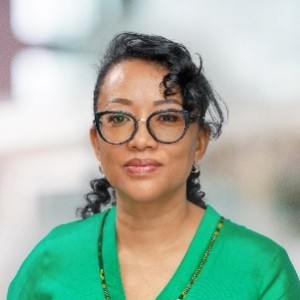
Caroline Jehu-Appiah
Caroline Jehu-Appiah is the Deputy Director, Health, Nutrition and Eradication, based in the Nigeria Country Office. She oversees the Nigeria Health portfolio and lead the team on their mandate to execute our grants and partnerships at the federal and state level in Nigeria, working closely with our Seattle-based team.
Caroline brings over 25 years of experience spanning public health, nutrition, human capital development, and program management across the health sector. Prior to accepting this role at the foundation, she worked at the African Development Bank (AFDB) as the Lead Policy Advisor to the President on health, nutrition and human capital development. She was largely responsible for advancing Universal Health Coverage through Health System Strengthening efforts supporting countries in their pandemic preparedness efforts.
Prior to joining AFDB, Caroline was the Deputy Director Policy Planning Monitoring and Evaluation Department of the Ghana Health Services. She co-led a multi-disciplinary team to develop Ghana’s first National Health Policy, led the development of the first Ghana Health Service Strategic Plan (2007-2011); she was part of the core team that designed, developed and implemented the Ghana’s innovative high impact Community Health Planning Services (CHPS) program which delivered health care to the door step of the communities. And to address financial barriers to health services, she was part of the technical steering committee for the Ghana’s National Health Insurance Scheme that has been an exemplar in Africa.
Caroline holds a MD from the Peoples Friendship University of Moscow; a MSc in Health Economics from University of York (UK) and a PhD in Health Economics and Health Care Financing from the University of Radboud in The Netherlands.
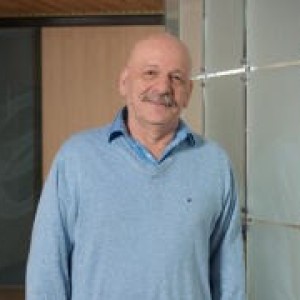
Mohsen Naghavi
Mohsen Naghavi, MD, PhD, MPH, is a Professor of Health Metrics Sciences in university of Washington. In IHME, he leads the Institute’s work on causes of death, intermediate cause, and antimicrobial resistance burden. He is Director of Subnational Burden of Disease Estimation. In this role he leads subnational analysis of disease burden, working closely with international collaborators and country governments, including projects in Brazil, Russia, Iran, Poland, and Ethiopia. Additionally, Dr Naghavi is a member of the Global Burden of Disease Scientific Council, which helps guide the research of the GBD collaboration.
Prior to IHME, Dr. Naghavi was a senior expert on primary health care, disease, injury, and causes of death in Iran, having spent most of his career at the Ministry of Health and Medical Education, running numerous programs and initiatives. At the Ministry, Dr. Naghavi headed the Applied Research Center for Health. Prior to his work at the Ministry, He was named one of the world’s “most influential scientific minds” by Thomson Reuters.
Dr. Naghavi studied at Tehran University and received an MPH, a PhD in
Epidemiology, and a medical degree.
IHME was established at the University of Washington in Seattle in 2007. Its mission is to improve health through better health evidence.
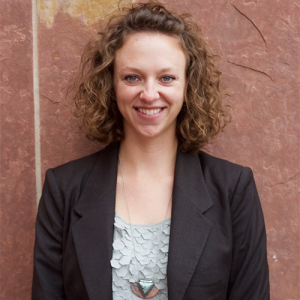
Ally Walker
Institute for Health Metrics and Evaluation (IHME)
Ally Walker is an Engagement Officer at the Institute for Health Metrics and Evaluation (IHME) working on the Global Burden of Disease (GBD) project and supporting IHME’s partnerships in sub-Saharan Africa. Ally has an MA in International Relations with concentrations in East Africa, gender, and project management and a BA in Anthropology. Prior to joining IHME, she worked in international development in rural Ethiopia and in refugee resettlement in the United States.
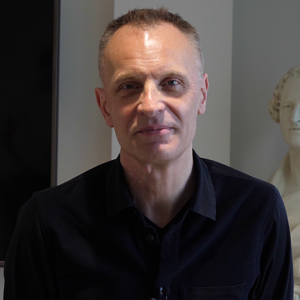
Richard Horton
Richard Horton is Editor-in-Chief of The Lancet. He qualified in physiology and medicine with honours from the University of Birmingham in 1986. He joined The Lancet in 1990, moving to New York as North American Editor in 1993. In 2016, he chaired the Expert Group for the High Level Commission on Health Employment and Economic Growth, convened by Presidents Hollande of France and Zuma of South Africa. From 2011 to 2015, he was co-chair of the UN’s independent Expert Review Group on Information and Accountability for Women’s and Children’s Health. In 2011, he was elected a Foreign Associate of the US Institute of Medicine and, in 2015, he received the Friendship Award from the Government of China. In 2019 he was awarded the WHO Director-General’s Health Leaders Award for outstanding leadership in global health and the Roux Prize in recognition of innovation in the application of global health evidence. He now works to develop the idea of planetary health – the health of human civilizations and the ecosystems on which they depend. In 2020, he published The COVID-19 Catastrophe: What’s Gone Wrong and How to Stop It Happening Again. A revised, updated, and expanded second edition was published in 2021.
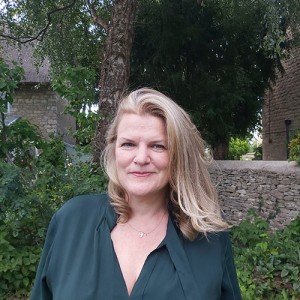
Tamara Lucas
Tamara Lucas is an Executive Editor at The Lancet. She studied Anthropology BSc at University College London, followed by a Master’s Degree at London’s Royal College of Art (MA RCA). After several years spent working as an anthropologist and curator of ethnography and Indigenous art in the UK and Australia, Tamara moved into publishing, joining Elsevier in 2007, followed by The Lancet in 2013. Tamara is particularly interested in climate change, food systems and nutrition, and planetary health.